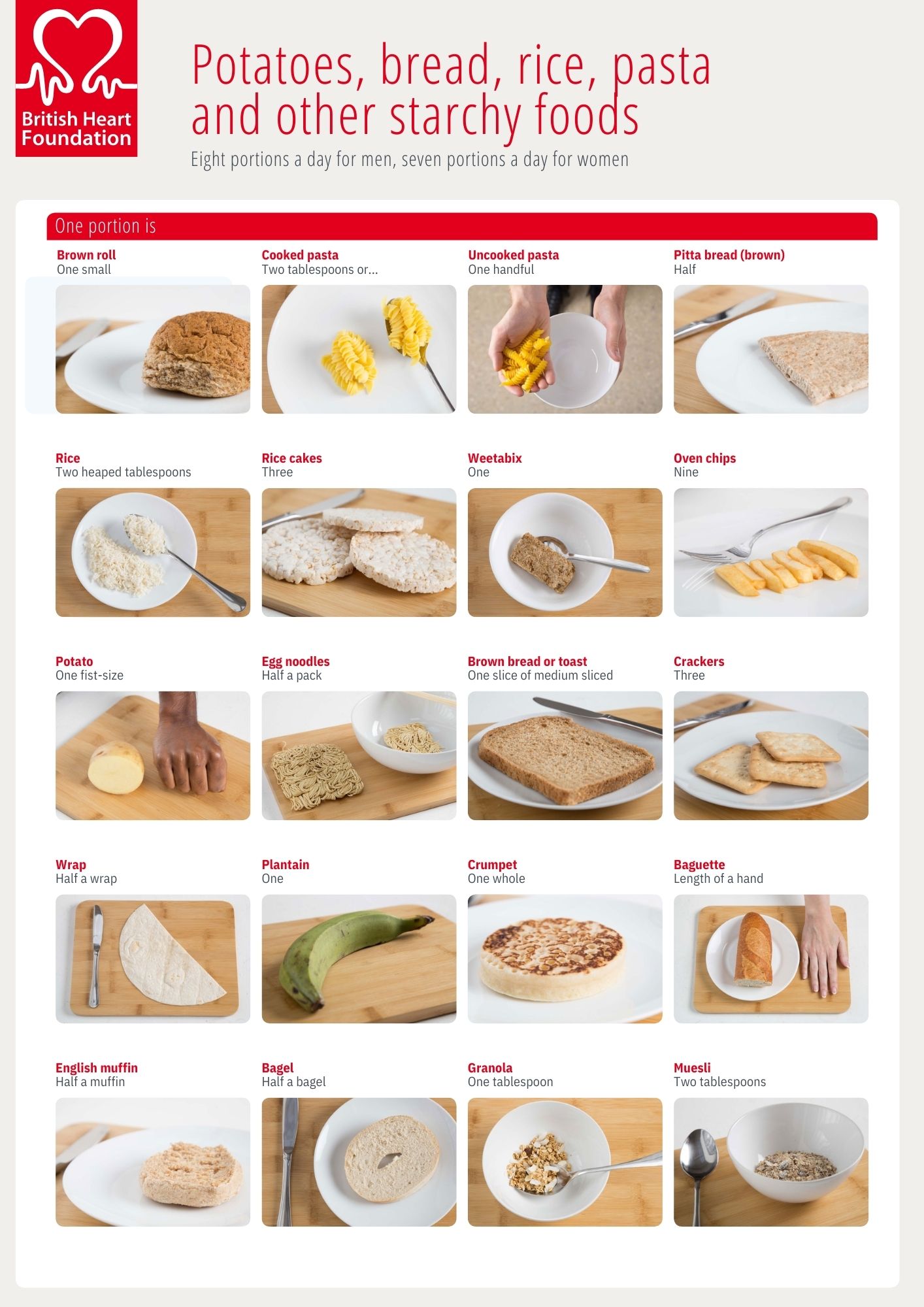
 Livewell Dorset Home page link
Livewell Dorset Home page link
0800 840 1628 • Monday - Friday 9am - 6:30pm Contact Us
We all know that eating the right amount can be challenging which is why these guides on measuring portion sizes by The British Heart Foundation is a great way to help you cut down.


If your portion sizes are too big, your weight and your blood glucose control will be harder to manage. It will also stop or slow down weight-loss, which is often part of managing diabetes.
Measuring out your food portions can be helpful and using your hands is an easy way to do this. Portion control is highly convenient for keeping portion sizes consistent which can also help you to reduce them. Other ways of weighing your food can be done by using a cup, bowl, jug and spoon.
A variety of food from the different food groups provide us with the nutrients we need for a healthy balanced diet. So, we should eat a number of portions from each food group every day to get the right number of proteins, nutrients, vitamins and calories to maintain a healthy weight.
 Potatoes, bread, rice, pasta, and other starchy carbohydrates
Potatoes, bread, rice, pasta, and other starchy carbohydrates You should eat some starchy foods every day as part of a healthy, balanced diet. They are a good source of energy and the main source for a range of nutrients in our diet. We should choose wholegrain healthier options such as whole wheat pasta, brown rice and seeded bread where possible as they contain more fibre, vitamins and minerals.
 Beans, pulses, fish, eggs, meat and other proteins
Beans, pulses, fish, eggs, meat and other proteins This food group provides a good source of protein, vitamins and minerals. Some of these foods may be high in fat, so choosing alternatives like pulses are good because they’re lower in fat and higher in fibre. You could choose lean cuts of meat and limit how often you eat processed meat such as burgers and sausages to reduce the amount of fat you’re having in your meals. Having fish, eggs, quorn and beans a few times a week can increase your portion size as they’re lower in fat.
 Fruit and vegetables
Fruit and vegetables Getting your five-a-day is really important for your health. Fruit and vegetables give your body the vitamins, minerals and fibre it needs to work at its best, as well as being relatively low in calories.
Fruit juice and smoothies are high in free sugars so need to be limited to no more than a combined total of 150ml. Dried fruits are quite concentrated in calories - keep to only one portion a day. Avocados are actually high in calories and one portion is actually half an avocado. Only one portion of beans and pulses count as one of your five a day and any additional portions will be counted as part of your beans, pulses, fish, eggs and other proteins food group.

Dairy products like milk and cheese give your body calcium and other important vitamins that it needs. Butter, margarine and cream does not fall under this food group – they’re include in oil and spreads. The fat content varies a lot between foods in the dairy food group, but it’s better to choose lower-fat versions when you can, such as unsweetened yoghurts and milk. If you don’t drink milk or eat dairy foods, it’s good to use a milk substitute like soya milk or ones with added calcium.
 Oils and spreads
Oils and spreads The oils and fats you use for cooking, baking or spreading are often high in saturated fat and calories, so you should only eat a small amount. You should try unsaturated fats like olive oil or rapeseed oil as an alternative to saturated fats like butter and ghee. One tablespoon of oil is actually enough to use between four people. Some protein foods may be hight in fat, so choosing lower-fat alternatives will help you get enough protein without the extra fat and calories.
For more information on healthy eating and to view the guides on portion sizes in full, visit The British Heart Foundation website.
Also, the NHS Eatwell plate is a useful guide to use, it shows how much of what we eat overall should come from each food group to achieve a healthy, balanced diet. You do not need to achieve this balance with every meal, but try to get the balance right over a day or even a week. Find out more about the NHS Eatwell Guide.

We're here for your health and wellbeing. Want to make a change? Register or contact us today to take your next step to LiveWell.
Your search has returned 105 more results
View all results